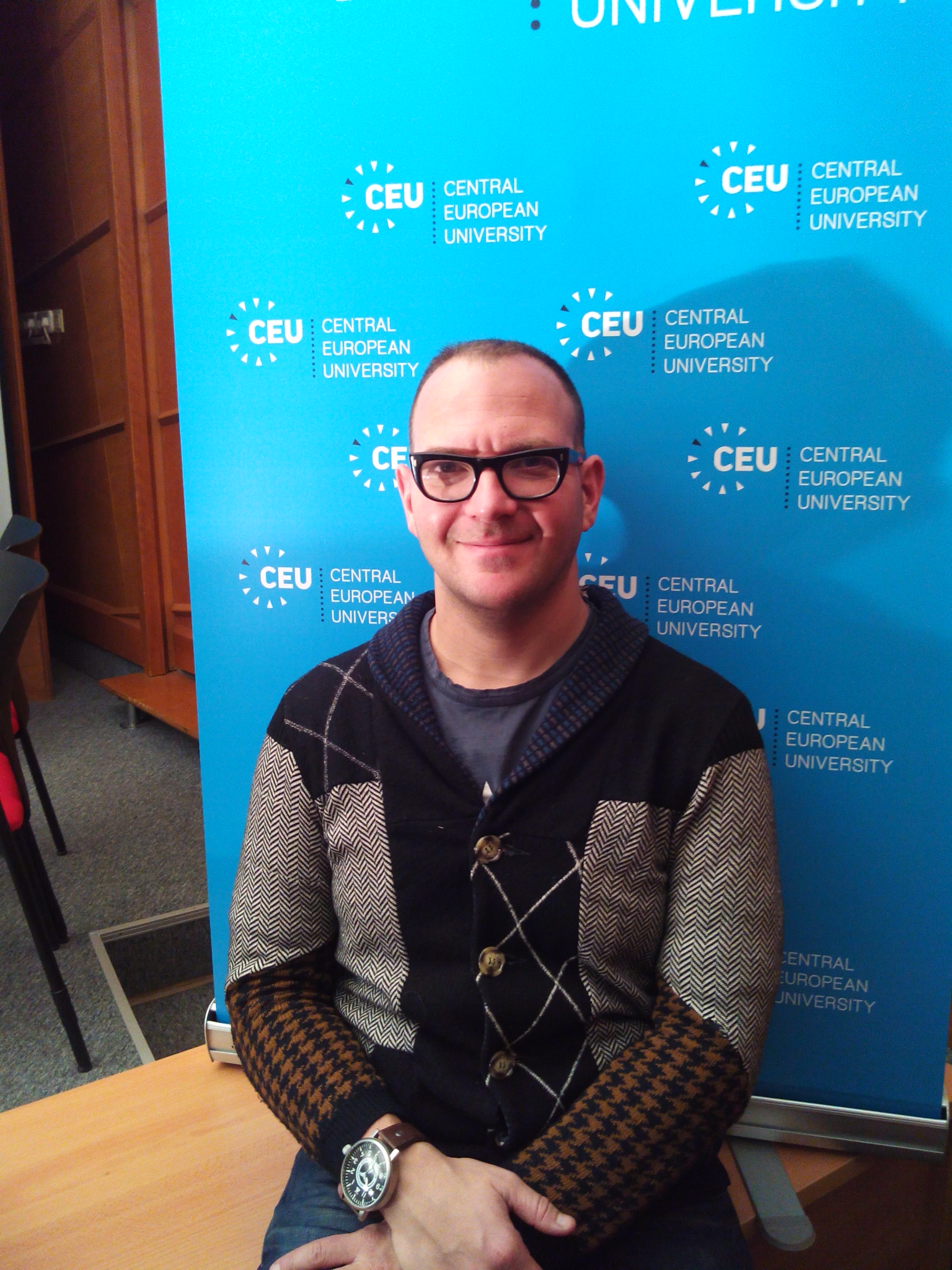 Cory Doctorow came over to Budapest at the invitation of the Center for Media, Data and Society of Central European University to speak on policing computers and other issues. In the course of a fascinating interview with me, he shared a slew of observations on a great many issues, many of which I’ll be presenting in subsequent articles. To begin with, though, here are his thoughts on where self-publishing has got to, and what the whole Amazon-Hachette spat reveals about the impact of DRM on the market.
Cory Doctorow came over to Budapest at the invitation of the Center for Media, Data and Society of Central European University to speak on policing computers and other issues. In the course of a fascinating interview with me, he shared a slew of observations on a great many issues, many of which I’ll be presenting in subsequent articles. To begin with, though, here are his thoughts on where self-publishing has got to, and what the whole Amazon-Hachette spat reveals about the impact of DRM on the market.
The most important thing that self-publishing does isn’t merely enriching the people who succeed in self-publishing. It’s changing the bottom line and lowest offer you can get from traditional publishing. For me as someone involved in traditional publishing, every Hugh Howey is a floor on the worst deal any publisher can offer me, because it has to be better than the deal Hugh Howey got multiplied by the chance that I might be the next Hugh Howey. So that’s hugely important.
Where this ties into copyright, is that in the name of preventing piracy, we’re making it harder to be the next Hugh Howey. We’re making it harder to start a self-publishing venture, whether that’s VATMOSS or things like increased liability for people like Lulu or Amazon or BookBay who allow people to upload their books, where we’re saying maybe they should make sure it doesn’t infringe copyright, which is an impossible task. If we make it the rule, then only Amazon and a few others will be able to do it, and they’ll effectively become the publishers. They’ll have the same deal, you need a multiplicity of services. And my books have shown up on Google Play and Amazon in pirated editions. As near as I can tell, they haven’t sold any copies, but they’ve shown up there. In order to protect my interests, we’re going to make it harder for anyone to go into business competing with Amazon on ebooks, [which] fucks me not because I self-publish, but because I’m with a regular publisher, and I rely on the self-publishers to keep the regular publishers honest.
In terms of DRM in publishing, the major impact we just saw, which is with Hachette, is that it makes it much more expensive for readers to defect from Amazon if Amazon and a publisher fall out. People used to say it’s unthinkable: The Big Five are not going to fall out with Amazon. Of course the Big Five are going to fall out with Amazon. Amazon is a publisher: Amazon competes directly with them.
The last novel I had, Homeland, hit the bestseller list in the first week. I was in 23 cities in 25 days. I’d see friends, and they’d say: How’s the new book doing? I’d say: It’s on the bestseller list! They’d say: Great, how many copies have you sold? I’d say: Ask me in 6 months. We’ll know in 180 days. Amazon knows now. They know who’s buying it, where they are, what other books they’re buying. They have competitive intelligence for their publishing arm that Macmillan will not get for another 180 days, most of which it will not get at all.
Of course there will be fallings-out between Amazon and the publishers. DRM locks readers to Amazon’s platform. You could imagine that Hachette could have changed the calculus of Amazon by saying: For so long as our books are not available on Amazon, all our books are available everywhere else, half price, and here’s a tool that will convert all your books to Kobo books. Amazon has spent a lot of money acquiring those customers. It does not want those customers to defect to someone else’s platform. And as Jeff Bezos has always said: Your margin is my opportunity. Kobo would love to have Amazon’s customers inside its gates. But for Hachette’s insistence on putting DRM everywhere, they might have been able to get Amazon to settle on much better terms much more quickly, and for the benefit of all their writers. Meanwhile, it’s pretty clear that DRM doesn’t stop anyone from pirating books.
Those are the two big publishing questions. As an artist, I think the much bigger question is that when you make it illegal to tell people how their devices work, or the ways in which they can be broken by other people, then you put them at grave risk of someone else doing something else with their devices. Our ebook readers are also a microphone, a camera; it’s seen you in the toilet; it’s seen your kids in the bathtub. It knows who all your friends are, and where you are, and how to log into your bank account. Even if you believe that it might harm J.K. Rowling’s ability to monetize her books, you ought to be able to know what it’s doing; but of course I don’t think it does jeopardize that in any way.


































This reads like a rambling monologue, which intends no descredit to you, Mr Mackintosh–you are only the messenger.
I’m willing to entertain the notion that I just don’t get it, but I have to say…”What?”
CD:
“For me as someone involved in traditional publishing, every Hugh Howey is a floor on the worst deal any publisher can offer me, because it has to be better than the deal Hugh Howey got…”
The seven-figure deal Hugh Howey got? Or some other, horrible deal I never heard of?
CD (next paragraph):
“Where this ties into copyright, is that in the name of preventing piracy, we’re making it harder to be the next Hugh Howey. We’re making it harder to start a self-publishing venture, whether that’s VATMOSS or things like increased liability for people like Lulu or Amazon or BookBay who allow people to upload their books, where we’re saying maybe they should make sure it doesn’t infringe copyright, which is an impossible task. If we make it the rule, then only Amazon and a few others will be able to do it, and they’ll effectively become the publishers.”
I’ve gone over and over this without being able to determine who “we” are in this context. Publishers who opt for DRM on Amazon books? I really can’t tell. And any logical steps between DRM, Piracy, VAT, etc. and Amazon becoming “the publishers” has entirely gone missing. I hope you’ll be able to make better sense of Mr Doctorow in the forthcoming articles.
The “we” Mr. Doctorow mentions includes society as a whole. I think that’s pretty clear. If we create laws which undermine the more level playing field brought on by the self-publishing boon, all creators of content and readers are going to suffer. That’s pretty straightforward from Mr. Doctorow’s piece. I would call his points passionate. A rant? Not really.